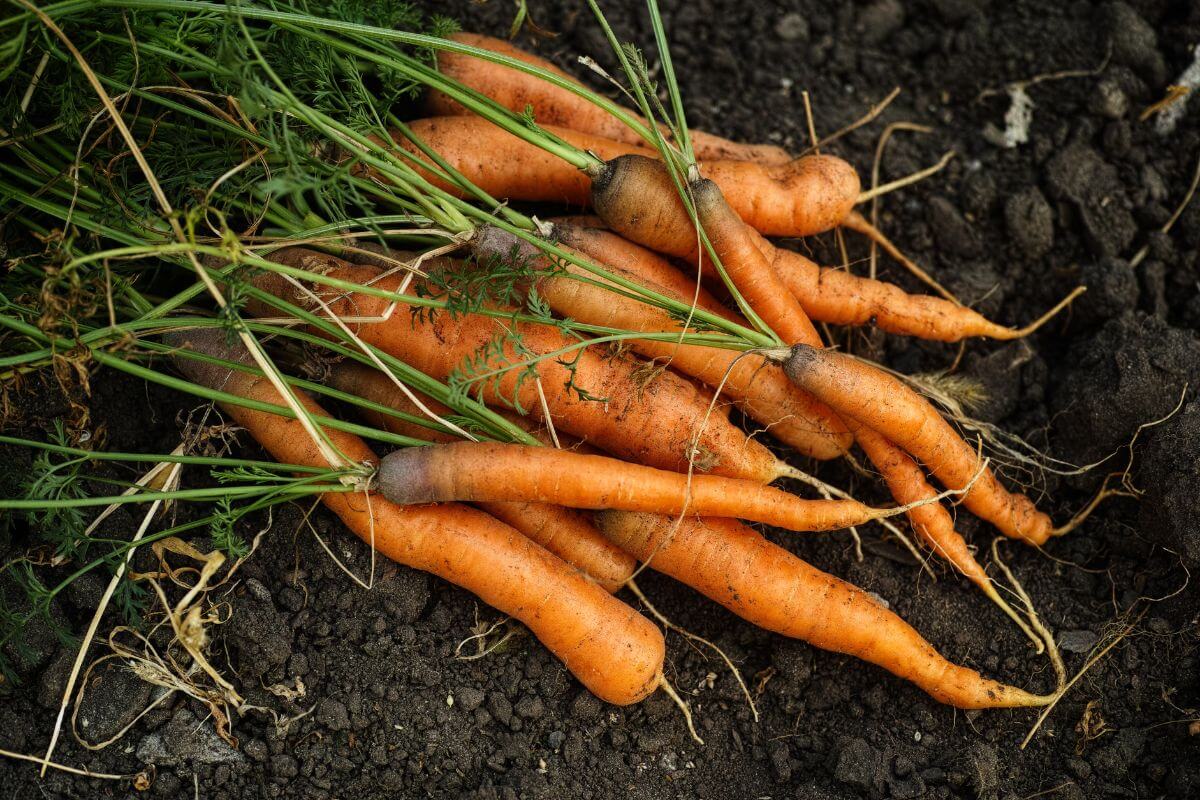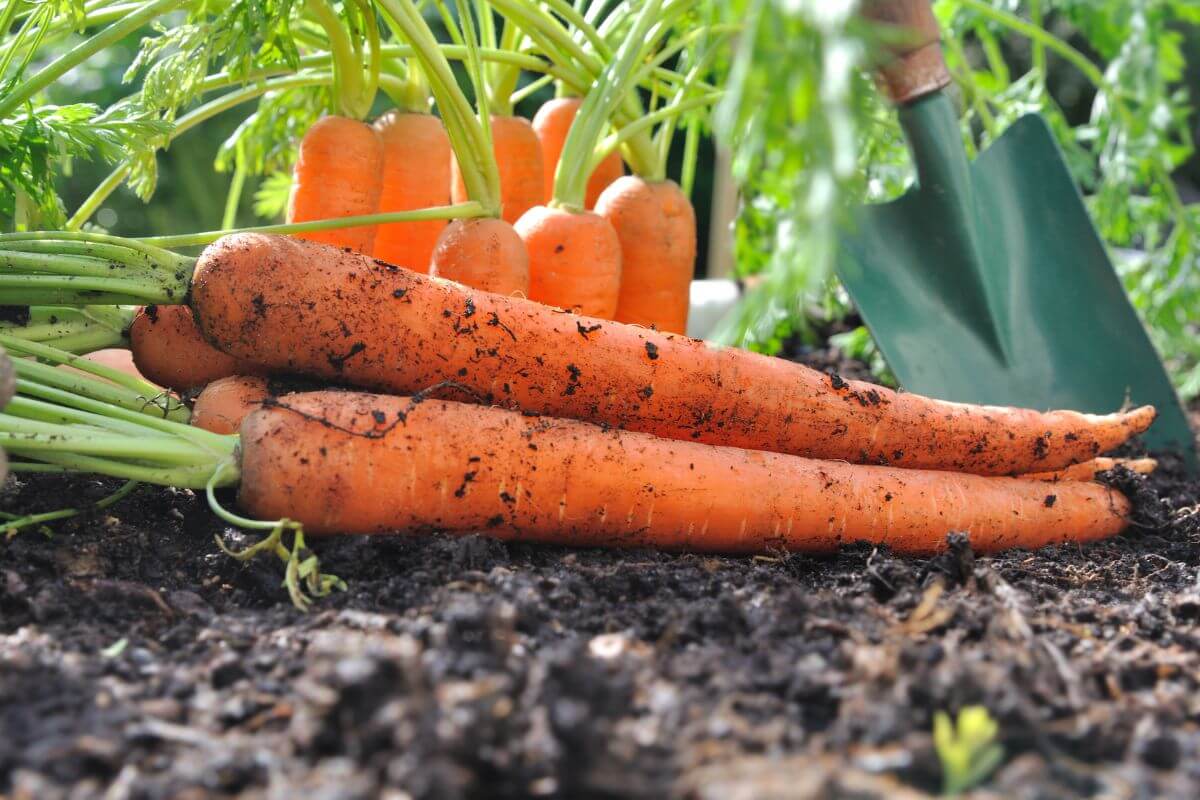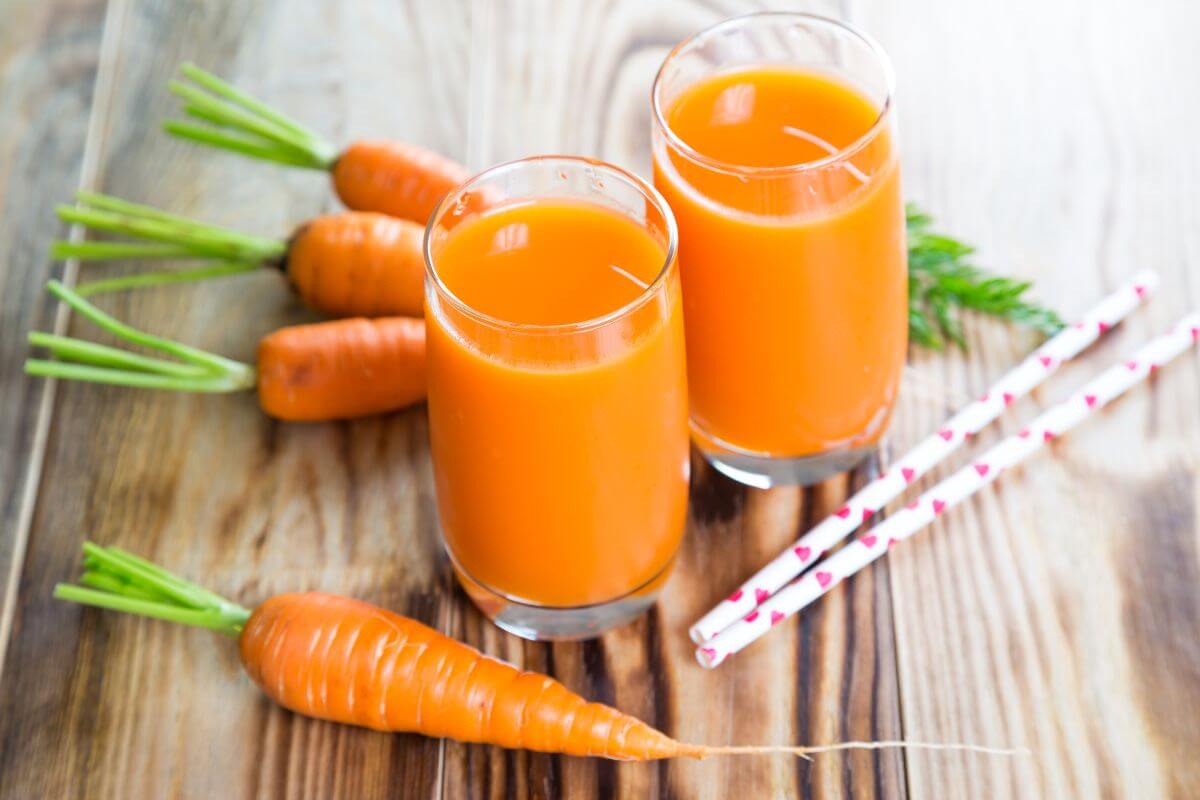Just about everyone I know will eat carrots in some form. For many of us, the carrot is a favorite when it comes to eating vegetables. This is especially true for children who often resist eating vegetables.
But are carrots man-made or are they genetically modified in some lab?
Carrots are man-made and naturally grown through selective breeding. The modern-day orange carrot that’s in all our supermarkets was grown after hundreds of generations of carrots.
Well, let’s take a walk back through history to discover the carrot’s origins.
- Related Article: Popular Fruits and Vegetables that are Man-Made
History of Carrots

The carrot that we know, love, and eat, finds its origins as a species of the Daucus carotaor wild carrot. It grows in a variety of colors, so it’s not limited to the well-known orange.
The wild carrot is a native of Europe and Southwest Asia. Originally cultivated for foliage and seeds, as a root vegetable, the most commonly eaten part is the carrot’s taproot.
Carrots are popular as a food source due to the fact that they can be raised in conditions that are less fertile than other vegetables.
The carrot is a biennial plant and vegetable, which means that it requires two years in nature to fully mature and flower. If the taproot is not harvested, it will die right after flowering.
An interesting fact is the original carrot was a purple carrot. Purple was the original color of carrots. Today, we can find carrots that are purple, yellow, red, white, and even black.
Are Carrots Man-Made?

It most certainly arrived at its present form thanks to human intervention. If you mean by citing “man-made”, was it created in a laboratory? No. Is it GMO or genetically modified? No. Is humankind in some part responsible for its modern characteristics? Yes.
The orange carrot that we consume today is a “man-made” hybrid vegetable because it was developed by farmers centuries ago through selective breeding. It is thought that approximately 1000 years ago, ancient farmers began cultivating both purple and white carrots.
Science suggests that carrots were around during the time of dinosaurs. When studying carrot ancestry, it was determined that carrots split from grapes approximately 113 million years ago, and about ten million years later from the kiwi.
Farmers gradually used the process of selective breeding to create a number of cultivars or varieties of the carrot, improving the taste along the way. This also explains the color variations achieved along the way, from the original white and purple to orange.
The theory is that about 1100 years ago, ancient farmers were busy domesticating the wild white carrot, and in the process of cultivation, the white became yellow. Some six hundred years afterward, during cultivation in Europe, the yellow deepened in hue and became orange.
Research geneticist Philipp Simon, who works with the United States Department of Agriculture and the University of Wisconsin, has studied with other colleagues the carrot’s genome extensively. He said, “There’s no good biological reason for carrots to be orange except one, and it’s that people have been diddling around with carrots for 1,000 years.”
Selective Breeding of Carrots
When indicating a vegetable or fruit as “man-made,” we are referring to the method of “selective breeding” that is performed by humans.
Similar to animal breeding, fruit and vegetables can be bred for specific, desirable traits and to develop desired characteristics. Plant breeding allows for farmers to grow carrots of certain sizes, tastes, and much more.
This process is often used to strengthen and improve crops and agricultural products for resistance to insects and infections.
Selective breeding is equally important for the development of tolerance to environmental conditions. That’s become more necessary as we get more frequent, harsh climatic conditions.
Seeds, cuttings, layering, and grafting can be used in the process of selective breeding. The single aspect that most characterizes selective breeding is the amount of time necessary to achieve improved farm produce.
Breeding to achieve desired traits can take centuries and sometimes even longer. Carrot production is done from one generation to the next generation and so on.
Health Benefits of Carrots

There are many health benefits to eating carrots.
Carrots are rich in vitamin A, which helps keep your eyes healthy. They contain fiber, which aids digestion and helps maintain regularity. They are also high in potassium, which helps regulate blood pressure and heart rate.
They are full of antioxidants, including beta carotene, lutein, zeaxanthin, and lycopene. These compounds help protect against cancer, cardiovascular disease, and macular degeneration.
Are Carrots Genetically Modified?
No, there are no genetically modified carrots in carrot farming. All the normal carrots out there in the carrot market are natural carrots.
Man-Made Carrots Final Thoughts
Are carrots man-made? In so much as they have been selectively bred, undoubtedly the answer would be yes. Of course, wild carrots are not man-made.
We most likely have ancient farmers to thank for the number of concentrated carotenoids in today’s carrots. Undoubtedly, the reasons for the selective breeding of the carrot continue to elude us. When colors and concentrations were being modified, nutrition, DNA genomes, and many other aspects had not even been imagined much less seriously considered for study.
Did these farmers “diddle” with ancient carrots for taste, disease, or pest resistance, climate resistance? We may never receive the solution to that query. Maybe they simply found the orange carrot more attractive aesthetically. Whatever their reasons, we have them to thank for a tasty vegetable rich in carotenoids and vitamins.
All things considered, carrots are nutritious, tasty, and do no harm if you add them to your diet. So, whether you consume them raw, with dips, in smoothies, or in stews, soups, salads, or even in cakes, offer up a smile for the ancestral farmers and enjoy!
Learn more about other fruits and vegetables and whether they’re man-made:

